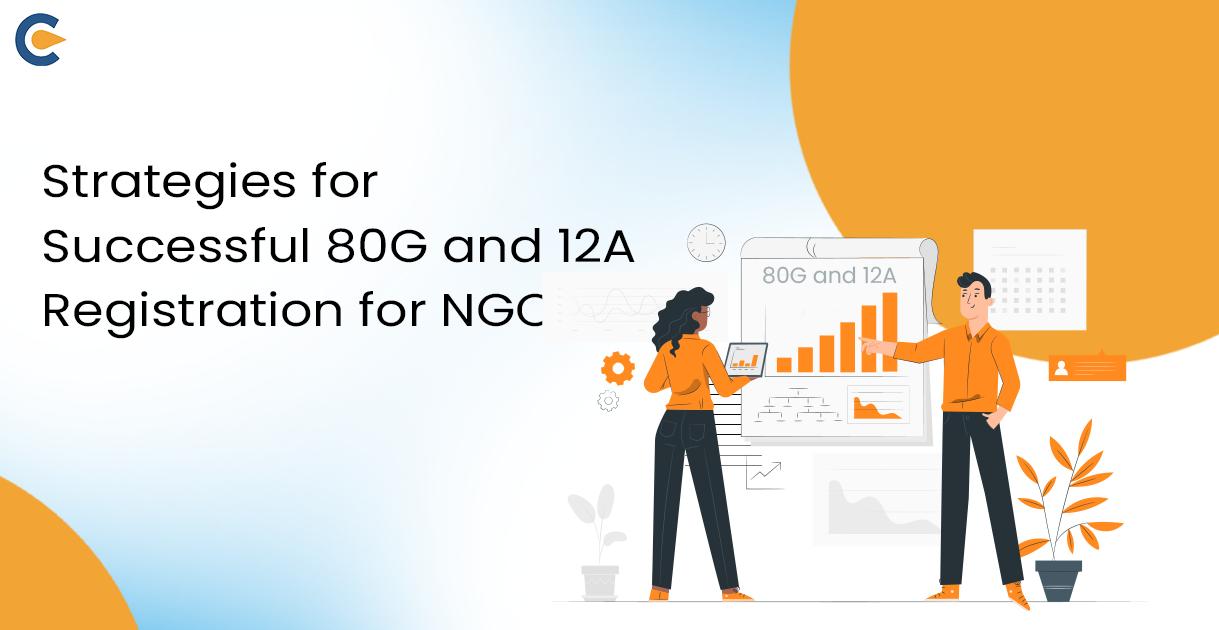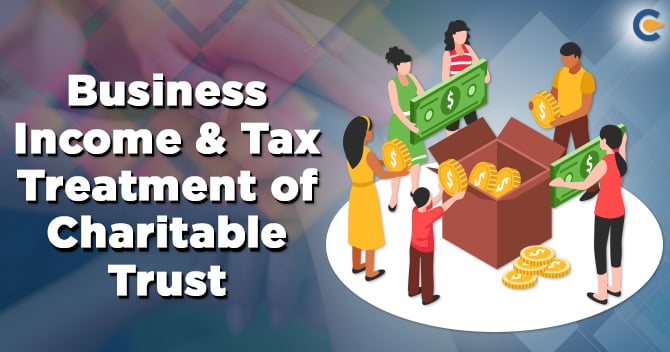The 80G and 12A are the required registration for NGO. The Indian Income Tax Act has provisions about registration for NGO that offer tax benefits to charity activities carried out by non-profit organizations, including Section 8 Companies. By offering tax advantages to contributors, non-profit organizations can recruit and generate donations with the aid of 80G and 12A registrations. By making their operations more tax-efficient, it can also assist them in achieving their philanthropic goals.
What is Non-Profit Organization?
Non-governmental organizations, also known as NGO, are nonprofit or not-for-profit businesses that strive to improve society and pursue charitable initiatives. In India, the word “NGOs” is used as a generic term and covers Section 8 companies, trusts, and societies.
Even though they are non-governmental organizations that work for the sake of society, the people who create them are nevertheless subject to several laws and regulations, one of which is registering them as businesses. For NGOs, there are several necessary registrations.
A crucial first step in bringing like-minded people together with a common goal of good change is registering an NGO. Their initiatives gain legitimacy from this institutional framework, which also makes them more accessible for finance and legal recognition. NGOs are adaptable organizations with a broad range of names used across the world to represent their aims and activities.
How to start an NGO?
To avail of registration for NGO following are the steps that are to be followed:
- The first and foremost step is to define the mission and goals of the NGO.
- The next step is to decide on an appropriate legal structure.
- After the legal structure is decided you can start with the registration process for NGO with authorities.
- For the registration process, you will need to fill application form and various other forms like INC-12, INC-32, etc, and submit other vital documents as well. Collect all such documents and submit them after duly filing the application form. Ensure that there are no errors and that all documents are accurate.
- Get the PAN and TAN for the NGO.
- Register the NGO for 80G and 12A certifications.
- Register with FCRA if the NGO is interested in working with other countries as well.
Importance of Obtaining Registration for NGO
The registration for NGO offers many benefits. Some of the key advantages of registering the NGOs are:
- Tax Exemption:
- The primary importance of 12A and 80G registration for NGO, the organization’s income is no longer subject to taxes.
- As a result, the organization may better use its funding for its charitable endeavors.
- Attracting Donations:
- This registration for NGO further aid in drawing donations.
- Organizations that are 80G certified are better able to draw in donations from both individuals and companies.
- When they may receive tax benefits on their contributions, donors are more inclined to make contributions. It stimulates a culture of giving back and calls for more involvement in charity.
- Credibility and Trust:
- When registration for NGO is met, they get more respect and confidence from possible contributors because the registration denotes adherence to legal criteria and financial transparency.
- Donors are reassured that their money will be used for legitimate philanthropic endeavors.
- Wider Reach:
- Registration for NGO increases the reach of non-profit organizations in India.
- The provision of tax exemptions under 80G registrations attracts people and companies looking to minimize their tax obligations while having a beneficial social effect, which broadens the donor base.
- As a result, organizations can obtain more funding for their activities and projects.
What is 80G Registration?
When a Section 8 company, charitable trust, or non-profit organization obtains the 80G Registration, the Income Tax Department will provide the latter an 80G Certificate. The 80G certificate was developed to encourage more donations to charitable organizations. Because charitable contributions are tax-deductible from the giver’s gross income, the donor benefits from a tax reduction equal to half of his donation.
80G registration for NGO requires renewal which is valid for five years. As a result, the application for a new 80G registration must be submitted at least six months before the current registration expires.
What is 12A Registration?
An NGO can apply for a Certificate of Exemption from the Income Tax Department in India through Section 12A Registration, often known as 12A Registration online. Since they are legally exempt, NGOs founded under Section 12A are not required to pay income tax. Additionally, 12A Registration Online is useful in getting validation from international governments and organizations because it is legally recognized proof of your NGO’s existence.
The 12A registration for NGO has been subject to additional changes as a result of the Finance Act Amendment of 2020, which extended its validity to five years following the issuance of the certificate of revalidates registration. Guidelines for revalidation under Section 80G and Section 12A are comparable.
Strategies for Successful 80G and 12A Registration
Many strategies can be followed when registration for NGO is carried out. These strategies for successful 80G and 12A registration are:
In Compliance with all Eligibility Standards:
Ensure that your NGO satisfies the requirements for 80G and 12A registration. Organizations that are involved in conducting religious or charity endeavors are qualified for these certifications. Assess the precise conditions and requirements provided by the Income Tax Department and various other authorities.
Maintain Accurate Documents
Maintain thorough and accurate records. Maintaining open and orderly financial records is essential to a seamless registration procedure. Get all the documents ready beforehand and submit them as per the prescribed requirements.
Regulatory Compliance:
Comply with all legal requirements and formalities as laid down by the authorities. This includes completing the required documentation work and forms within the deadlines that are specified. To guarantee continued compliance, be informed about any amendments to the requirements.
Expert Assistance:
Consult tax experts or consultants who have experience working with nonprofits and charity organizations. They can help you compile the required paperwork, offer insightful advice on the application procedure, and make sure your company satisfies all criteria for 80G and 12A registration.
Transparency in Operations:
Maintain transparency in the governance and operations of your company. Give precise details about your philanthropic endeavors, recipients, and the use of proceeds. Maintaining a well-functioning regulatory body and upholding moral principles will increase your legitimacy when registering.
12A and 80G Registration with Corpbiz
Our company specializes in simplifying and performing the registration for NGO. 12A and 80G registration procedures for NGOs or Trusts can be completed more quickly. Among the services we provide are Form 10A/10AB applications, re-registration, provisional registration, help with renewals, and trust-based 12A and 80G registration certificates. Our expert staff is well-versed in Section 12A registration as well as Section 80G registrations. Get in touch with us for quick and easy help with your registrations.
Conclusion
In conclusion, donors’ income taxes, non-profits, and NGOs must apply for 12A and 80G certifications! It also makes it easier for NGOs to obtain government funding. The Income Tax Department grants charity organizations, Section 8 corporations, and non-governmental organizations two registrations: 12A and 80G. These licenses let contributors deduct their contributions from their taxes and grant the organization’s tax exemptions. It is more acceptable for an NGO registered under 12A and 80G to get sizable funding and several tax breaks.
Frequently Asked Questions
While donations given to registered charity institutions can be tax-deductible under the 80G registration, non-profit organizations are free from paying income taxes under the 12A registration.
If they satisfy the requirements set out by the Income Tax Department, any non-profit entity, including charity trusts, societies, and non-profit corporations, can apply for 12A and 80G registrations.
There are no restrictions on the tax deductions that people can claim from the Income Tax Department, which range from 50% to 100%.
No, donations are exempt from the TDS requirements
An organization must submit an application to the Income Tax Department together with the necessary documentation to apply for 12A and 80G registrations. The application may be submitted in person or online, based on the instructions provided by the department.
Depending on the kind of organization, different costs apply for 12A and 80G registrations. For trusts, the typical 12A registration price is around Rs. 500, while for non-profit businesses or societies, it is approximately Rs. 2,000. 80G registration costs are usually more and might change.
The duration of processing for 80G and 12A registrations may differ. The Income Tax Department often needs several months to examine and handle the applications. However, several variables, such as the department’s workload and the accuracy of the paperwork, may affect the precise time frame.
Typically, 12A and 80G registration costs are paid in one go. Unless there are particular modifications to the registration data, there is no need to pay the costs again after the registrations are approved.
No, the organization has to have an 80G registration to claim tax deductions on donations. Donations to organizations that are not registered under section 80G are not tax deductible.
Read our article: Tax Exemption for NGOs: Section 12A & 80G











